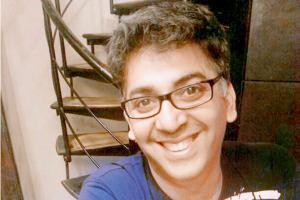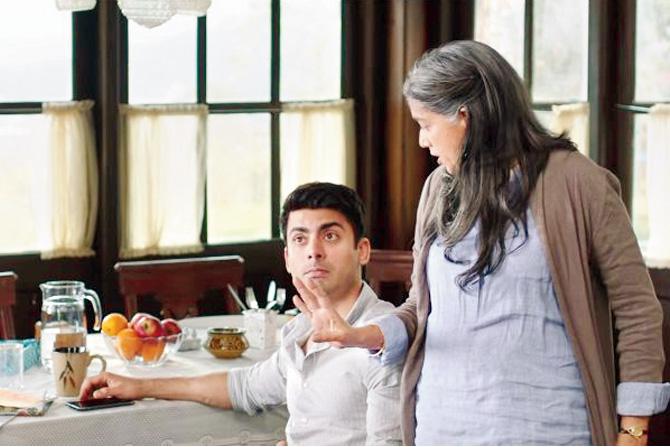Popular bibliophile Vivek Tejuja discusses his upcoming memoir that details growing up gay in India of theu00c2u0080 90s, with books and Bollywood

Vivek Tejuja
Vivek Tejuja’s name is synonymous with the book-blogging community in the city. As an avid bibliophile and cultural editor of a leading lifestyle magazine, the 36-year-old has now turned author. In So Now You Know (HarperCollins India), which releases tomorrow, Tejuja walks down memory lane — back to the ’90s — to come back with fragments of his life that make him who he is today. He paints a picture of growing up gay in Bombay, falling in love with Sridevi, visiting Voodoo, and simply, twirling.
Edited excerpts from the interview.
Let’s start with the last part of the book — the acknowledgements. Here, you begin by saying, “Writing a book isn’t easy.” What was the most difficult bit about writing a memoir?
The fact that it was so personal. For me — although I hate saying the word — it was cathartic. Moreover, as a reader, the very nature of writing takes a major toll on you. Fortunately, my editor and publisher didn’t ask me to structure it in any way. There was no pressure of a narrative and following a timeline; that’s why you’ll find me going back and forth in time.
I started writing about one and a half years back. I had written a couple of chapters already and when I met the editor, the idea was simple: there isn’t a lot of gay literature written in India.
 Tejuja, giving an example of Kapoor and Sons, advocates for greater normalisation of the LGBTQ+ community in Indian cinema
Tejuja, giving an example of Kapoor and Sons, advocates for greater normalisation of the LGBTQ+ community in Indian cinema
On that note, you mention the popular ’90s show Tara where you were introduced to the first gay character on Indian television. But you also write about how, even though the writers wanted to be progressive with his character, it ended up being regressive. Isn’t that a recurrent problem in Indian cinema?
Of late, perhaps not. I feel like the movies haven’t normalised it that much. Even in Kapoor and Sons, the character [Rahul] has been living in a different country and his coming out is shown to be accidental. I don’t find it to be problematic but we do need films that show [this dynamic] in an Indian household for the normal junta; one that doesn’t bracket you in any way — the “gay” character, so to say.
You were taken for therapy the moment you came out. What did mental health resources look like in the ’90s and how much has that changed today?
Okay, so I was taken to a psychiatrist, not a therapist. Mental health was looked at from a very different angle — you were just termed mad. A psychiatrist, isn’t there for you emotionally like counsellors. But of course, things are much better today. I have been seeking therapy for the past five years, and technology has made things easier... An 18-year-old now has options to give his parents to read, watch and understand the queer community. But the real problem is in schools and the bullying that children face — they shouldn’t be put behind the wall of shame.
Catch up on all the latest Mumbai news, crime news, current affairs, and also a complete guide on Mumbai from food to things to do and events across the city here. Also download the new mid-day Android and iOS apps to get latest updates
 Subscribe today by clicking the link and stay updated with the latest news!" Click here!
Subscribe today by clicking the link and stay updated with the latest news!" Click here!







